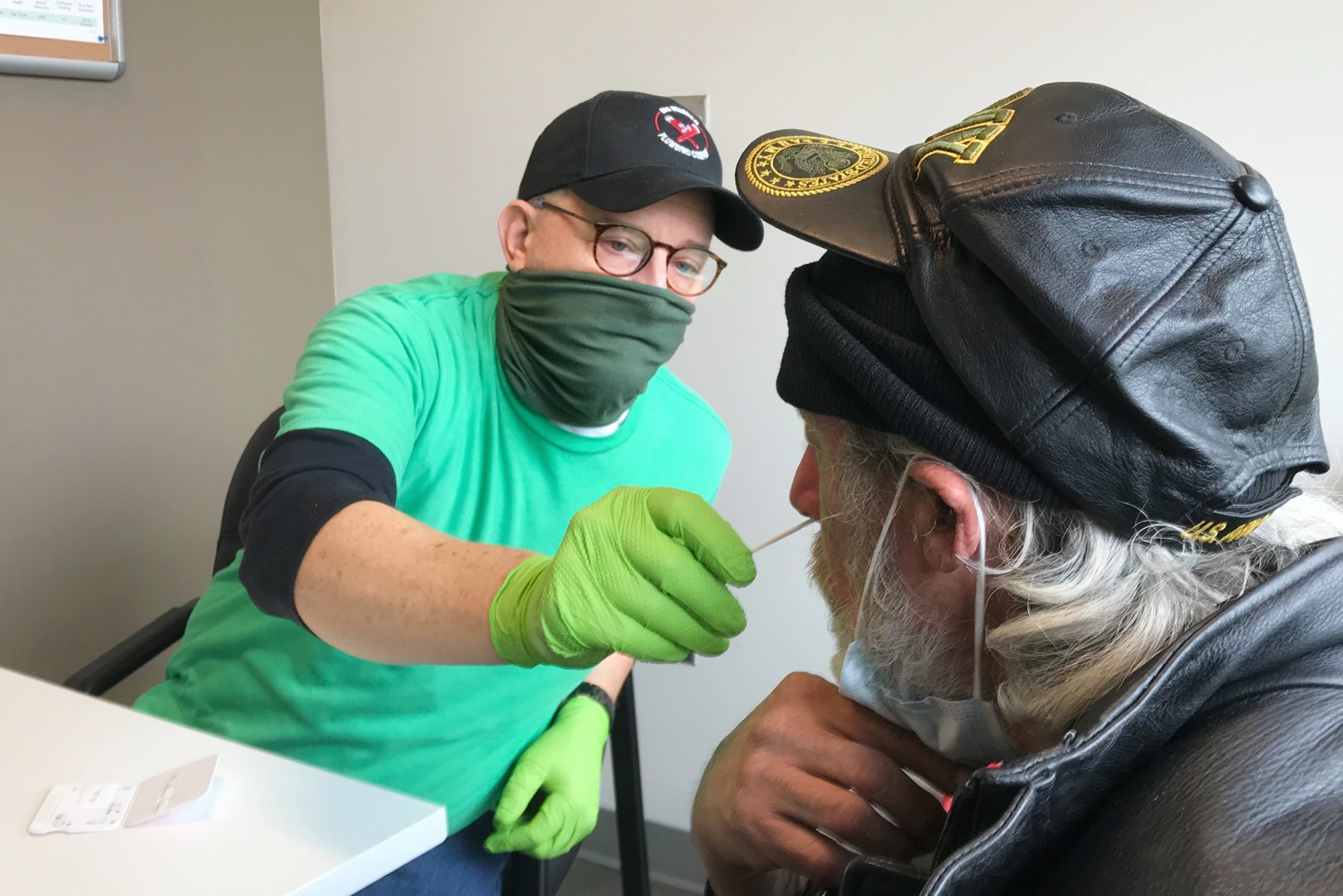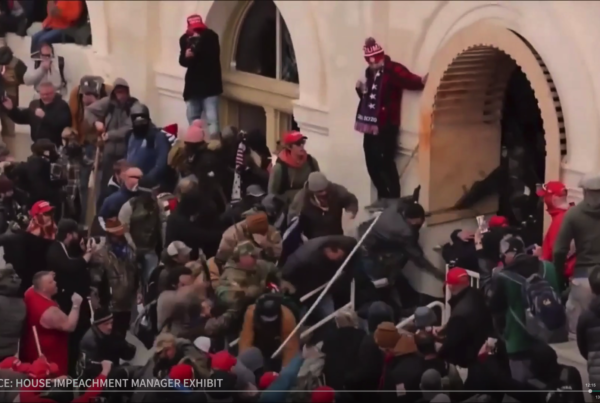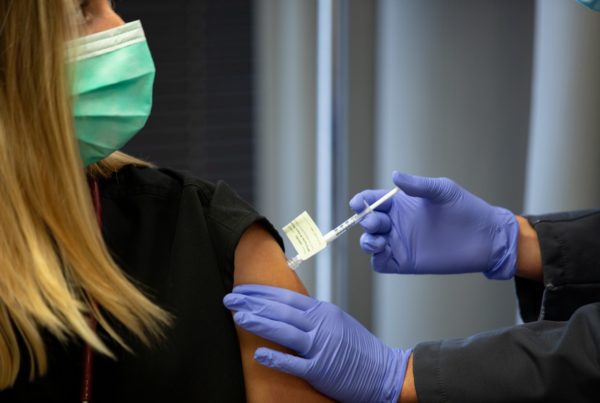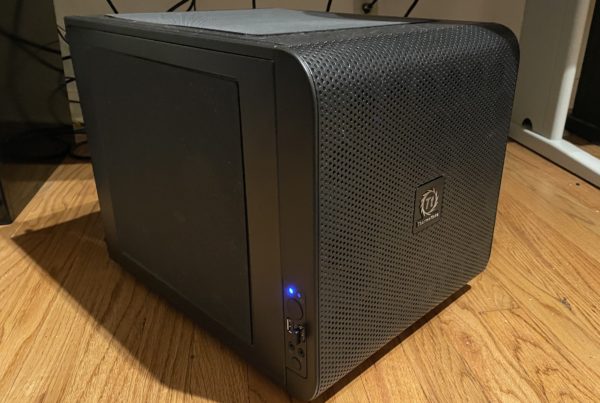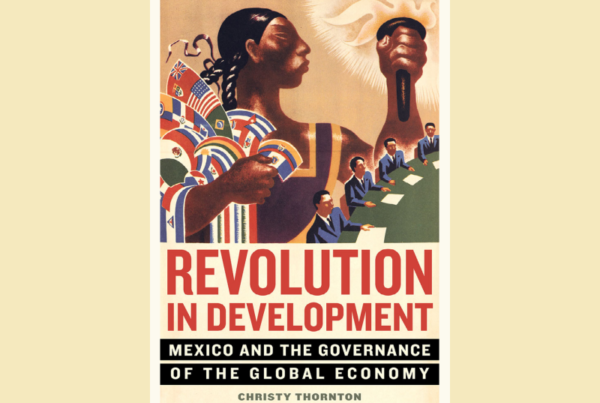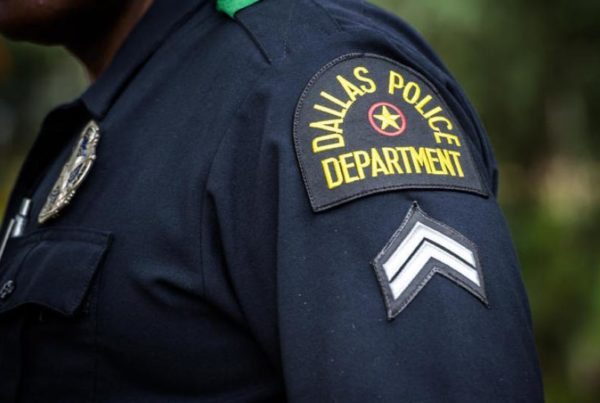Last month, Dallas area homeless service organizations received 6,000 rapid COVID-19 tests from the Texas Department of Emergency management. It was a victory celebrated by nonprofits and philanthropies. The tests eliminated a frustrating pandemic-era obstacle faced by those dedicated to sheltering and caring for people experiencing homelessness — the long wait times for test results that prevented people from getting into shelters quickly.
Since the coronavirus began spreading widely across North Texas last spring, homeless shelter operators have required guests to present a negative COVID test before gaining entry. These are, after all, places where a lot of people spend hours together indoors, a potentially dangerous setup for a virus adept at spreading silently and quickly.
But without steady access to rapid tests, shelters have had to rely primarily on laboratory tests for the better part of a year, which usually take days to process.
That has presented a particular challenge for people experiencing homelessness, who don’t have a stable place to stay while waiting for results. The circumstances that lead to homelessness often make it distinctly challenging to follow up at the right time and place to get test results days after being tested.
“And that was leaving us with shelter beds that were unfilled,” said Carl Falconer, president and CEO of Metro Dallas Homeless Alliance. “So they would get their test and then we could not find them in three days to give them their test results and get them into the shelter.”
So when members of the Dallas Area Eviction Prevention Task Force, organized by the United Way of Metropolitan Dallas. learned that the state had access to thousands of rapid tests made by the company Abbott, they pounced, Falconer said. It didn’t take long to secure 6,000 of the brand-new tests from the state Department of Emergency Management, with a pledge to deliver more soon.
“We can get people tested with these rapid test kits, and get them immediately into emergency shelter to fill up the beds for people who wanted to get into shelter,” Falconer said.
A Barrier Removed
OurCalling, a nonprofit that operates a day shelter just south of downtown Dallas, became the first site to begin administering the rapid tests. It was followed quickly by two others, Family Gateway and the Family Place, and more shelter providers are being trained on the tests.
“I can tell you in the last 20 days we put over 200 people into placement, either shelters or long-term recovery programs,” said Pastor Wayne Walker, executive director of OurCalling.
OurCalling is a hive of activity most days. People stop in to get a hot meal, do laundry, take a shower, or charge a phone. There’s a healthcare clinic, a tidily organized storeroom full of donated clothes, and respite from the weather. Staffers help people sign up for services like food assistance, figure out which shelters have beds available, and find programs intended to help people exit homelessness.
Before the pandemic hit, Dallas already had the largest homeless population in the South, Walker said. Services for people experiencing homelessness were already spread too thin. Affordable housing was already in too-short supply, and too many employers were paying wages too low to build a stable life on.
The pandemic and its attendant economic shock disproportionately hit low-wage workers and buffeted Black and Latino communities.
OurCalling has seen the impact.
Walker said his organization typically saw about 30 newly homeless people each week before the pandemic.
“We saw 95 last week. We saw 140 the week before,” Walker said. “That’s brand new people, people that are just for the first time in their life experiencing homelessness.”
A ‘Very Easy Process’
As more and more shelters and homeless services organizations get trained up on these new rapid tests, Walker says they’ll be able to help more people more quickly.
That removes one more barrier for people like Kevin Stuart, 57, who sat in front of a sunny window at OurCalling on Friday waiting for lunch and the results of his rapid COVID test, which consists of a long Q-Tip-like swab, a paper sleeve and a dot of reagent chemicals.
Getting tested, Stuart said, was “a very, very easy process.”
Stuart was waiting for his results so he could board a bus headed to the Hotel Miramar. That’s one of the hotels the City of Dallas bought with federal coronavirus relief funds to help house people experiencing homelessness.
Stuart, who walks with a cane and said he can’t work because of a disability, has found housing elusive.
“I’ve been waiting for housing for I don’t know how long. And either because I don’t have a phone or because I did not stay in contact with my care manager, or case manager, things went awry,” he said. “It’s hard for me to get around for me to get around town to these meetings and appointments.”
So Stuart had been living at a tent encampment the city has been trying to shut down for weeks. Now, though, he thinks he’s on a path to get the services he needs and the permanent housing he’s been hoping for. He’s looking forward to just a modicum of normalcy, he said.
“I was not a fool and I did not stay behind. I wanted to take advantage of that,” he said.
About 15 minutes after he had his nose swabbed, Stuart gets his negative COVID test results – one more obstacle cleared on his way to a new home.
Got a tip? Christopher Connelly is KERA’s One Crisis Away Reporter, exploring life on the financial edge. Email Christopher at cconnelly@kera.org.You can follow Christopher on Twitter @hithisischris.


